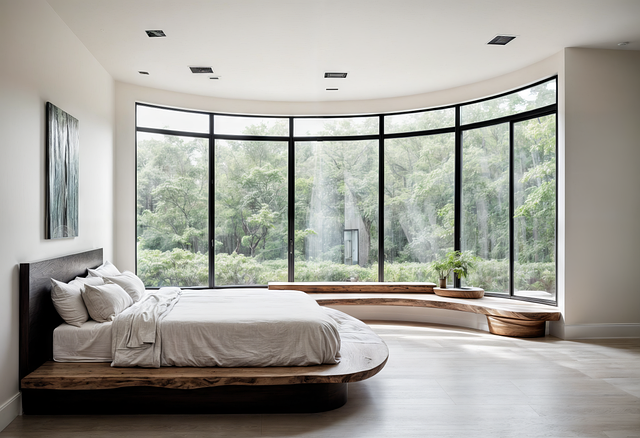If you're constantly dragging through the day like a zombie in slow motion, chances are your sleep game needs a serious upgrade. Quality shut-eye isn't just about clocking hours—it's about how well you actually rest during those precious moments of unconsciousness. The good news? There are some surprisingly simple tweaks that can transform your sleep from "meh" to magical. And no, we're not talking about counting sheep or chugging chamomile tea (though hey, if that works for you, go for it).
The Temperature Tango
Your bedroom might be secretly sabotaging your sleep without you even realizing it. Turns out, our bodies are Goldilocks-level picky about temperature—too hot or too cold, and you'll be tossing all night. The sweet spot? Around 65 degrees Fahrenheit (18°C). This mimics your body's natural temperature drop when it's time to hit the hay. Pro tip: Try taking a warm shower before bed. Sounds counterintuitive, but the rapid cooldown afterward actually signals your brain that it's sleepy time. And ditch those thick pajamas—sleeping in lighter layers helps your body regulate temperature better throughout the night.
Light Pollution Problems
That cute little LED on your charger? Yeah, it's basically a tiny sleep assassin. Our brains are hardwired to associate light with wakefulness, so even small light sources can mess with your melatonin production. Blackout curtains are a game-changer, but if you can't install them, try a sleep mask—the good ones feel like a gentle hug for your face. And about screens: that "just one more episode" habit is killing your sleep quality. The blue light from devices tricks your brain into thinking it's daytime. If you absolutely must scroll before bed, at least use night mode or blue light blocking glasses.
The Caffeine Conundrum
Here's the brutal truth: that 3pm pick-me-up might be why you're staring at the ceiling at midnight. Caffeine has a half-life of about 5 hours, meaning if you drink a coffee at 4pm, half of it is still partying in your system at 9pm. Try cutting off caffeine by noon and see what happens. And don't forget about sneaky sources—chocolate, some medications, and even decaf coffee (which isn't completely caffeine-free) can add up. If you need an afternoon boost, try a quick walk outside instead. The natural light and movement will energize you without the sleep sabotage.
Wind Down Like a Pro
Your brain doesn't have an off switch—you can't just plop into bed and expect to instantly conk out. Create a "buffer zone" between your busy day and sleep time. This could be reading a book (an actual paper one), doing some light stretching, or practicing simple breathing exercises. The key is consistency—doing the same relaxing routine every night trains your brain to recognize these activities as precursors to sleep. And no, scrolling through social media doesn't count as winding down (sorry).
Mattress Matters More Than You Think
That lumpy old mattress you've had since college? It's probably not doing you any favors. Most mattresses need replacing every 7-10 years, but many people hang onto them way longer. If you wake up with aches or find yourself constantly shifting positions, it might be time for an upgrade. Don't just grab whatever's on sale—take time to test different firmness levels. Side sleepers generally need softer mattresses, while back and stomach sleepers often do better with firmer support. Many companies now offer sleep trials, so you can test drive a mattress for a few months before committing.
The Anxiety-Sleep Cycle
Ever notice how when you're stressed about not sleeping, you... can't sleep? It's a vicious cycle. Instead of watching the clock and calculating how few hours you'll get if you fall asleep RIGHT NOW, try getting up and doing something boring (like folding laundry or reading a textbook) until you feel sleepy. Keep a notepad by your bed to dump all those racing thoughts onto paper before sleep. And if you wake up in the middle of the night, resist the urge to check your phone—that blue light will fully wake you up. Instead, try focusing on your breathing or imagining yourself in a peaceful place.
Improving your sleep isn't about finding one magic solution—it's about stacking small wins that add up to better rest. Some of these tips might work for you immediately, others might need some tweaking. The key is to experiment and pay attention to what your body responds to. Remember, even small improvements in sleep quality can make a huge difference in how you feel during the day. So pick one or two things to try tonight, and give your body the quality rest it deserves. Sweet dreams!
























